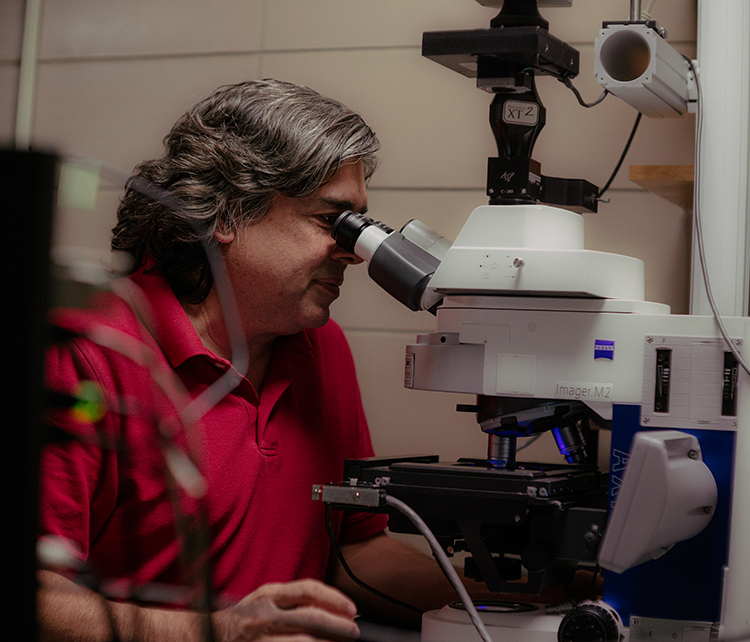[ad_1]

Proper cell division is essential for life on earth. The process is a complicated dance involving intricate cellular mechanisms and signaling, and it all happens on a microscopic level. Much about how this works is still unknown.
Mohan Gupta, associate professor in in the Department of Genetics, Development and Cell Biology and head of the Gupta Lab, and his research team have been awarded the Frontier Science Fund in the College of Liberal Arts and Sciences (LAS) to explore one facet of this complex action.
The Frontier Science Fund was established in 2021 by Tom (’68 geology, MS ’71) and Evonne (’68 textiles and clothing) Smith. The fund was created to advance foundational research in LAS. The goal is to support and advance high-quality research projects with fundamental and positive societal consequences.
Gupta’s research team collaborates with Justin Walley, associate professor, Department of Plant Pathology, Entomology, and Microbiology, as co-principal investigator. Together, they are investigating microtubule generated tension, a facet of the cell division process that occurs at the molecular level.
Gupta will use his expertise in tubulin biochemistry to explore the mechanisms that determine when microtubule tension is correct. Understanding these mechanisms will reveal biological processes that are critical for human health and could potentially help alleviate certain birth defects and cancers.
All about cell division

When a cell divides into two new cells, the duplicated “sister” chromosomes, or DNA, are pulled apart along a spindle, a molecular machine formed out of microtubules. Prior to division, the chromosomes are gathered at the middle of the spindle until the tension on each pair of chromosomes is just right, indicating they will be successfully separated. If the proper tension does not exist, the cell will not divide.
“There are two errors that signal the cell not to divide,” Gupta said. “One is that the sister chromosomes have not attached to microtubules, and there will be no tension, or the chromosomes will have attached to only one side, and there will be low tension.”
This research is valuable for two reasons. First, if cells don’t perform properly, they will mis-segregate their DNA, which can lead to birth defects or more aggressive tumors. Second, cancer therapies that target microtubules, such as Taxol, do not discriminate between tumor cells and healthy cells.
“If we can understand the mechanisms that sense tension, or signal the tension status in ways that can cause proliferating cells to die, then we might be able to make chemotherapies that work better or have fewer side-effects,” Gupta said.
The avenue of investigation
To explore the molecular signaling that indicates correct cellular tension, Gupta is working with budding yeast, which is like baker’s yeast.
“We use it because it’s a eukaryotic cell and it’s related to plants and animals and humans, but it’s very simple,” Gupta said. “Studying it builds the foundation of knowledge so we can more easily understand how it works in a person.”
Gupta and his team are also examining the role of signaling enzymes, called kinases, in the process of microtubule functioning and cell division.
“We found some interesting phosphorylation sites that are modified by these enzymes under different tension states, so we are investigating whether these may be directing the cell’s response to correct or incorrect tension. And that is what we are testing specifically with this phase of the grant,” Gupta said. “Once we have a handle on that, we know that these are changing in response to tension, and if we can show that they matter, then it will be important for understanding genomic stability and for strategies to prevent or treat cancer.”
Gupta is excited about the potential of his research.
“I am very grateful that the donors were so generous in providing this funding, and the university and the people of Iowa have built a top-rate research institute, so I am able to do this work here,” Gupta said.
2024-12-16 21:23:40
[og_img
